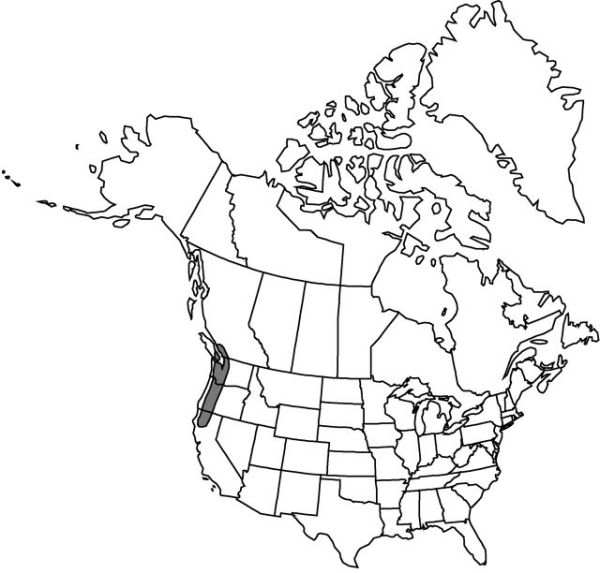Difference between revisions of "Erythronium oregonum"
Madroño 3: 99. 1935.
FNA>Volume Importer |
FNA>Volume Importer |
(No difference)
| |
Revision as of 19:31, 24 September 2019
Bulbs narrowly ovoid, 25–60 mm, sometimes producing sessile offsets. Leaves 12–25 cm; blade distinctly mottled with irregular streaks of brown or white, ovate to broadly lanceolate, margins wavy. Scape ± reddish, 15–40 cm. Inflorescences 1–3-flowered. Flowers: tepals white to creamy white with yellow base at anthesis, sometimes pinkish in age, sometimes with red lines or bands, elliptic to narrowly ovate, 25–40 mm, inner with small auricles at base; stamens 12–25 mm; filaments white, flattened, ± lanceolate, 2–3 mm wide; anthers cream to yellow; style white, 12–18 mm; stigma with recurved lobes 3–6 mm. Capsules oblong to narrowly obovoid, 3–5 cm. 2n = 24.
Phenology: Flowering spring (Mar–May).
Habitat: Open coniferous forests, rocky outcrops, oak woodlands, meadows
Elevation: 0–500 m
Distribution

B.C., Calif., Oreg., Wash.
Discussion
Forms from the southern part of the range with cream-white tepals and pale anthers have been described as subsp. leucandrum. This species is closely related to E. revolutum and occasionally hybridizes with it where their ranges meet. In addition, E. citrinum and E. hendersonii are reported to hybridize with E. oregonum in the southern part of its range.
Selected References
None.